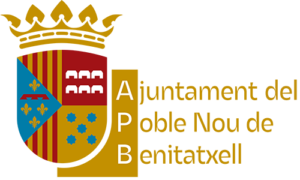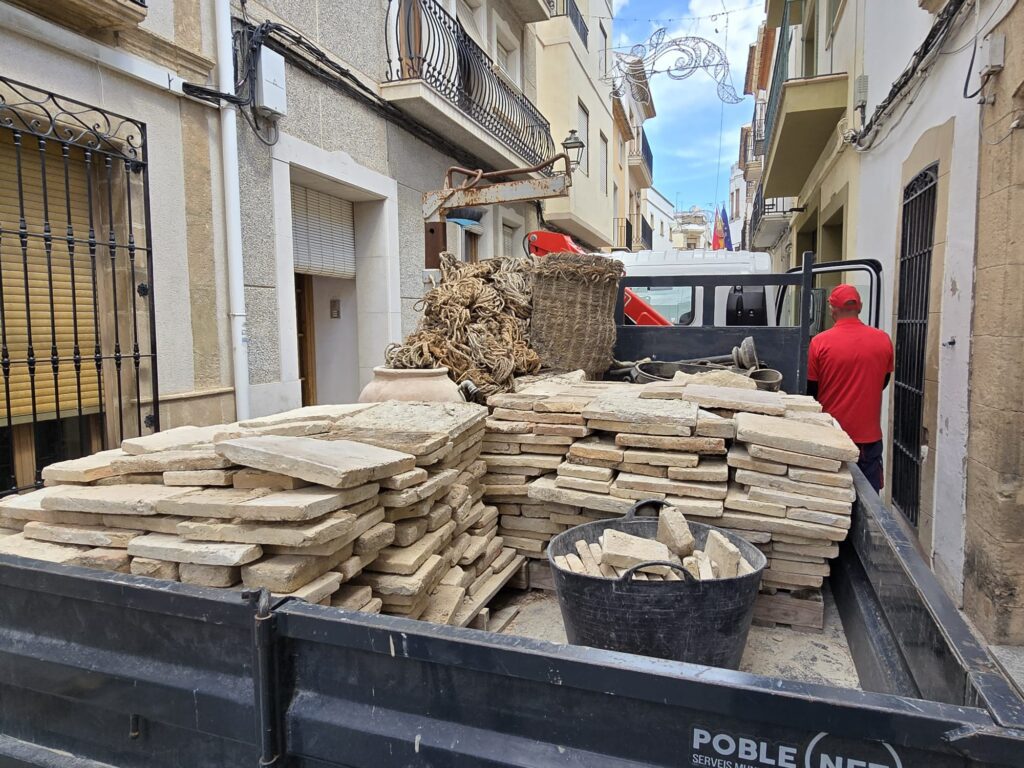- The Patrimony Office has recovered various pieces of tosca, terracotta tiles, religious paintings, a vessel and some baskets that were used as hives.
There are old houses that hold great treasures. Not those with a high monetary cost, but those with an enormous patrimonial and historical value that recover the memory and identity of a town. At El Poble Nou de Benitatxell, two private donations have helped to enhance this patrimony. The owners of houses number 17 and 19 on Mayor Street, a married couple from England and a woman of Russian origin, have given the Council important pieces that will be kept as ethnological elements of high value.
After acquiring these two houses in the heart of the old town centre in order to restore them, archaeologists from the local Patrimony Office inspected the properties, as required by the regulations that preserve houses in protected areas. They saw interesting pieces of local history and, given that they were to be thrown away after the renovation, they reached a cession agreement with the owners.
Thus, various pieces of tosca, terracotta tiles, baskets that served as hives, religious paintings and a vessel that was used to contain lime have been donated. The owners have given up the elements they were going to throw away, while others, such as tinajones or hydraulic tile paving, have decided to keep them inside the houses for their enjoyment. In addition, in order to restore the front wall, a sign explaining the history of the house was removed, but after that, they have decided to put it back up again so that people can appreciate the history of these houses.
“For them it is an added value that the history of their home is known”, explained the archaeologists from the Patrimony Office, Humberto García and Alejandro Gomis. “They had numerous ethnographic elements which, although they are not in perfect condition, do provide us with relevant information about the history of the municipality. For the owners they had no value and were going to be thrown away, but for the Council they have great historical and patrimonial value in present and future interventions, as they can be used in the development of an interpretation centre, museum or even in the restoration of Pous de l’Abiar washing house, where we know that there are pieces of highly degraded terracotta that can be replaced by the donated ones”.
These donations have been made on a voluntary basis by means of a document of donations of movable property drawn up by the Patrimony Office and reviewed by the council’s lawyer.
“We are very happy and grateful that there are people who appreciate and care for our patrimony and, moreover, want to put it in value”, said the councillor of Patrimony, Víctor Bisquert. “These people have bought homes in the old town centre and have understood the importance of conserving and protecting the history and patrimony of the municipality. They are a great example that should be known and acknowledged”.
Bisquert has also recalled that all items of historical or patrimonial value are welcome and that, if there are neighbours who have items that they are going to get rid of, they should contact the Council through the Patrimony Office to study their conservation.
It should be remembered that the historic centre of El Poble Nou de Benitatxell has been declared an Asset of Local Relevance and, therefore, the protocol requires that when works are carried out in a protected area, the council must be informed so that it can be inspected by archaeologists, who will determine whether it is necessary to conserve any ethnological elements of historical value to the municipality.


